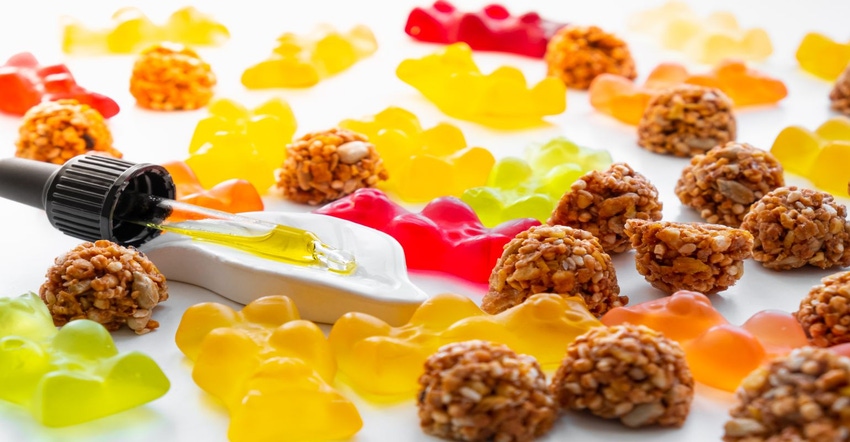THC-containing edibles ‘copycat’ popular snacks, may attract children
A new study found 8% of THC-containing edibles mimic popular snack brands, underlining recent reports of unintentional marijuana exposure to children.

THC-containing snacks that mimic popular snack brands and products could unintentionally attract children, a new study warns (Drug Alcohol Depend. 2022. DOI: 10.1016/j.drugalcdep.2022.109409).
Growing acceptance of cannabis use has ushered in a flurry of product innovation, especially in edible formats, called “edibles,” which include everything from drinks and gummies to baked good and mints. In fact, Zion Market Research projects the global cannabis edibles market will garner nearly $14 billion by 2025, representing a compound annual growth rate (CAGR) of around 30.5% between 2019 and 2025.
Tetrahydrocannabidiol, or THC, is the compound responsible for the psychoactive effects of cannabis.
The issue of children unintentionally consuming THC-containing products has become more prevalent as the use of marijuana becomes increasingly mainstream. Although cannabis use is prohibited under federal law, a handful of states have legalized marijuana for adult recreational use, and more than half have legalized the substance for medical use.
A recent Pediatrics study found that between 2017 and 2019, 1,906 calls about exposures to cannabis edibles in babies and children through age 9 were made to regional poison control centers, with 1,837 of exposures confirmed unintentional.
The frequency of these calls increased over the two-year period, which researchers attribute to unintentional exposures to edible cannabis products.
Likewise, recent media reports have warned of the dangers deceptive packaging of cannabis products pose to children.
The present study, published in Drug and Alcohol Dependence, aimed to determine whether cannabis products resemble commercial non-cannabis counterparts in accordance with recent reports.
For the study, researchers collected photos of cannabis products via an online survey of cannabis users and through personal contacts from May 2020 to August 2021.
Packages were evaluated for similarities with commercial non-cannabis counterparts according to brand name, product name, font, color, flavors and brand/promotional characters. Copycat/lookalike products were defined as products that use the same or similar brand name, logo and/or imagery as an existing commercial non-cannabis counterpart.
Of 731 cannabis products, 267 (36%) were edibles. Of those, 22 (8%) represented 13 unique copycat/lookalike products.
Specifically, eight products used exact brand/product names as existing commercial non-cannabis counterparts, and five used similar names. The copycat products copied or imitated a mean of 3.9 of six features.
Researchers also examined indications of cannabis content on the packaging, including THC content per package and serving, whether the package displayed a cannabis leaf symbol, and product warnings, cannabis terms, cannabis motifs, activation time and guidance on edible use.
Of the copycat products, cannabis content was indicated with a mean of 4.1 of eight features. Thirteen packages indicated a mean THC content of 459 mg/package. Four displayed the dose of THC per serving, with a mean dose of 47.5 mg.
Researchers characterized indications of cannabis on edibles packaging as “subtle.”
“Copycat/lookalike edibles subtly indicate cannabis content while using high fidelity replication or imitation of their commercial non-cannabis counterparts,” they wrote.
Researchers also raised issue with the products’ high THC content and concluded that “these products may be attractive to children.”
Rachel Adams joined Informa’s Health & Nutrition Network in 2013. Her career in the natural products industry started with a food and beverage focus before transitioning into her role as managing editor of Natural Products INSIDER, where she covered the dietary supplement industry. Adams left Informa Markets in 2019.
About the Author(s)
You May Also Like






